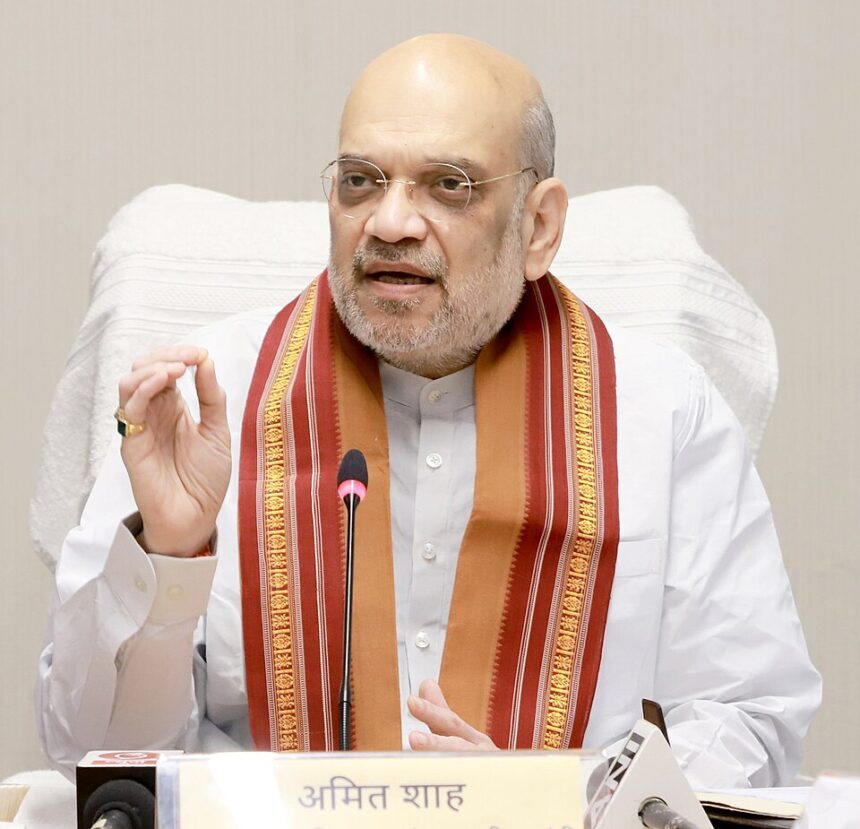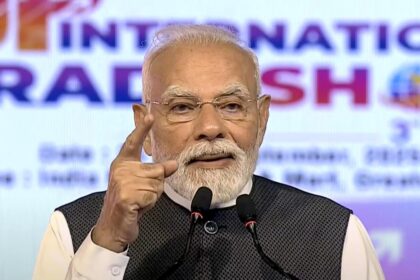Amit Shah to Present Constitutional Amendment on Union Territories in Parliament Tomorrow
Union home minister Amit Shah on Tuesday evening (August 19) wrote to the secretary-general of Lok Sabha notifying him that he intends to move the Constitution (130th Amendment) Bill, 2025, the Government of Union Territories (Amendment) Bill, 2025 and the Jammu and Kashmir Reorganisation (Amendment) Bill, 2025 in the ongoing monsoon session of the Parliament on Wednesday, August 20.
The amendment allows the governors of states and lieutenant generals of Union territories to sack a chief minister or any state minister if they are detained in jail for 30 days, even if not convicted. The amendment also applies to the prime minister, giving the power to sack him or her to the president of India – though the possibility of a Union government law enforcement agency arresting the person who controls them and keeping them in jail for 30 days is zero.
To bring the new rule into force, Shah will move the Constitution (130th Amendment) Bill that seeks to amend Article 75 of the Constitution (‘Other provisions as to Ministers’) by inserting the following section:
“A Minister, who for any period of thirty consecutive days during holding the office as such, is arrested and detained in custody, on allegation of committing an offence under any law for the time being in force, which is punishable with imprisonment for a term which may extend to five years or more, shall be removed from his office by the President on the advice of the Prime Minister to be tendered by the thirty-first day, after being taken in such custody:
“Provided that if the advice of the Prime Minister, for the removal of such Minister is not tendered to the President by the thirty-first day, he shall cease to be a Minister, with effect from the day falling thereafter:
“Provided further that in case of the Prime Minister, who for any period of thirty consecutive days during holding the office as such, is arrested and detained in custody, on allegation of committing an offence under any law for the time being in force, which is punishable with imprisonment for a term which may extend to five years or more, shall tender his resignation by the thirty-first day after such arrest and detention, and if he does not tender his resignation, he shall cease to be the Prime Minister with effect from the day falling thereafter…”
The new rule, the bill says, will also mean that an elected chief minister can be removed if he/she is detained or arrested for 30 or more days, even if his conviction has not happened.
The new rule has also been incorporated as an amendment to section 45, sub-section (5) of the Government of Union Territories Act, 1963. The J&K Reorganisation (Amendment) Bill, contrary to speculation about the possibility of restoration of statehood for the Union territory, introduces a similar clause, namely that if a minister in J&K is arrested or detained for 30 consecutive days for any offence punishable for five years or more, they can now be removed by the lieutenant-general or on the advice of the chief minister:
“A Minister, who for any period of thirty consecutive days during holding the office as such, is arrested and detained in custody, on allegation of committing an offence under any law for the time being in force, which is punishable with imprisonment for a term which may extend to five years or more, shall be removed from his office, by the Lieutenant Governor on the advice of the Chief Minister to be tendered by the thirty-first day, after being taken in such custody,” the J&K Reorganisation (Amendment) Bill states.
The amendment bill, if passed, will give additional powers to the Union government to remove a chief minister or anyone in their cabinet. Unlike what the Union government had told the court – that it will restore full statehood for J&K soon – the new amendment bill has taken an opposite direction to empower itself with greater administrative powers than before, and strengthen the Union government’s rule in J&K against the elected UT government even further.
In an initial reaction to the move, senior Congress leaders have denounced Shah’s proposals as a means of undermining opposition ruled states.
“What a vicious circle! No guidelines for arrest followed! Arrests of opposition leaders rampant and disproportionate. New proposed law removes incumbent #CM etc immediately on arrest,” Abhishek Manu Singhvi tweeted, adding: “Best way to destabilise opposition is to unleash biased central agencies to arrest opposition CMs and despite being unable to defeat them electorally, remove them by arbitrary arrests!! And no ruling party incumbent CM ever touched!!”
The Wire also learnt that Shah has marked the letter to the Union minister of parliamentary affairs Kiren Rijiju, the legislative department of the ministry of law and justice, the Lok Sabha secretariat, and the legislative office of the Lok Sabha.
Shah requested in a separate letter urging the secretary-general to show some leniency in rules of the house for him to move both the amendment bills in the current session. Shah is said to have cited “paucity of time” to urge the secretary-general to go easy on the procedures and rules of the Lok Sabha mentioned in Rule 19 (A) and 19 (B) to facilitate the proposal in the current session that is supposed to end on August 21, 2025.
Rule 19 (A) requires a government minister to give prior notice to introduce a bill in the Lok Sabha, while Rule 19(B) says that government bills should be circulated to all members of the Lok Sabha before they are formally introduced to facilitate review and preparation of the concerned bill.
Late Tuesday evening, the government confirmed the report on Shah’s proposals to the secretary-general, when the ministry of parliamentary affairs sent a revised government business list to the Lok Sabha secretariat and requested it to incorporate the agenda. It also said that these bills could be discussed in the House on August 21, 2025, if the discussions carry over to that day.
Shah suddenly sent the request to the secretary-general about his proposal to move the bills even as only two working days of the monsoon session are left, the Lok Sabha secretariat pointed out that it could be a violation of Rule 19A and 19B. Speaker Om Birla is said to have asked the secretariat to find a solution to accommodate Shah’s urgent request.
It is then that Shah was told to write another letter urging the secretary-general, Utpal Kumar Singh, to be lenient with Rules 19A and 19B. There is a possibility that after Shah moves these legislations, he may seek their referral to a select committee, given the fact that these important bills were brought about without giving enough time to opposition leaders to review them.
Also Read: CM Rekha Gupta Assaulted During ‘Jan Sunwai’ Programme – 1 Arrest Sparks Political Uproar








